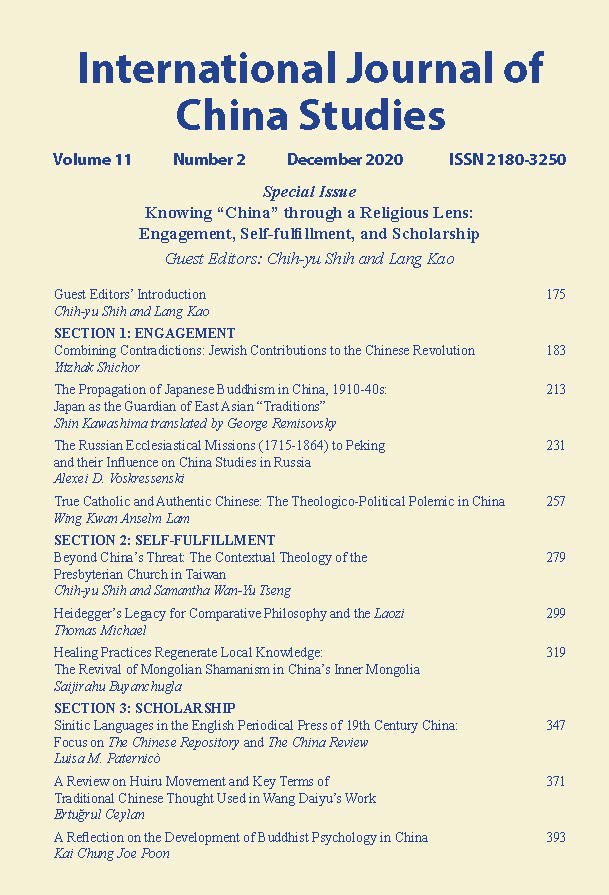A Reflection on the Development of Buddhist Psychology in China
Keywords:
Buddhist Psychology, Zen Buddhism, Humanistic Buddhism, East Asia, East-West dichotomy, Southeast AsiaAbstract
Starting with the creation of the term “Buddhist psychology”, this paper has reviewed the development of this discipline. The review is focused on but not limited to the Chinese academia. The term “Buddhist Psychology” was first used in the Western academia by Rhys Davids (1857-1942) in her book Buddhist psychology: an inquiry into the analysis and theory of mind in Pali literature which was published in 1914. Interestingly, checking the Asian academia, the term “Buddhist Psychology” was used even earlier in 1898 by a
Japanese scholar called Inoue Enryō (1858-1919). Later, Buddhist Psychology was introduced to China by Liang Qichao (1873-1929) and Master Taixu (1890-1947) around the 1920s. Influenced by the prevalence of Behaviourism in the West, Chinese scholars tended to have a strong mistrust of Western psychology theories at the beginning. This could be seen in the speeches and writings of Liang and Taixu. Such an attitude has a great influence on the later development of Buddhist psychology in China till now. Overall speaking, it is
obvious that Buddhist psychology in the Chinese academia is strong in theoretical elaborations but relatively weak in empirical studies. Also, this paper has identified that Buddhist psychology has different trends of development in Mainland China, Taiwan and Hong Kong. Such differences can be attributed to historical and political reasons. While the main reason for Liang and Taixu to look down upon Western theories was caused by the prevalence of Behaviourism in the West, the continuation of such attitude can be explained
by the attempts of Chinese researchers to regain recognition and esteem. This attitude is clearly shown in the discourse of Chinese researchers: “what the Western psychology has, Buddhist Psychology also has such; furthermore, we have the better one.” Based on a critical review of the past, this paper provides some suggestions for the future development of Buddhist psychology.

